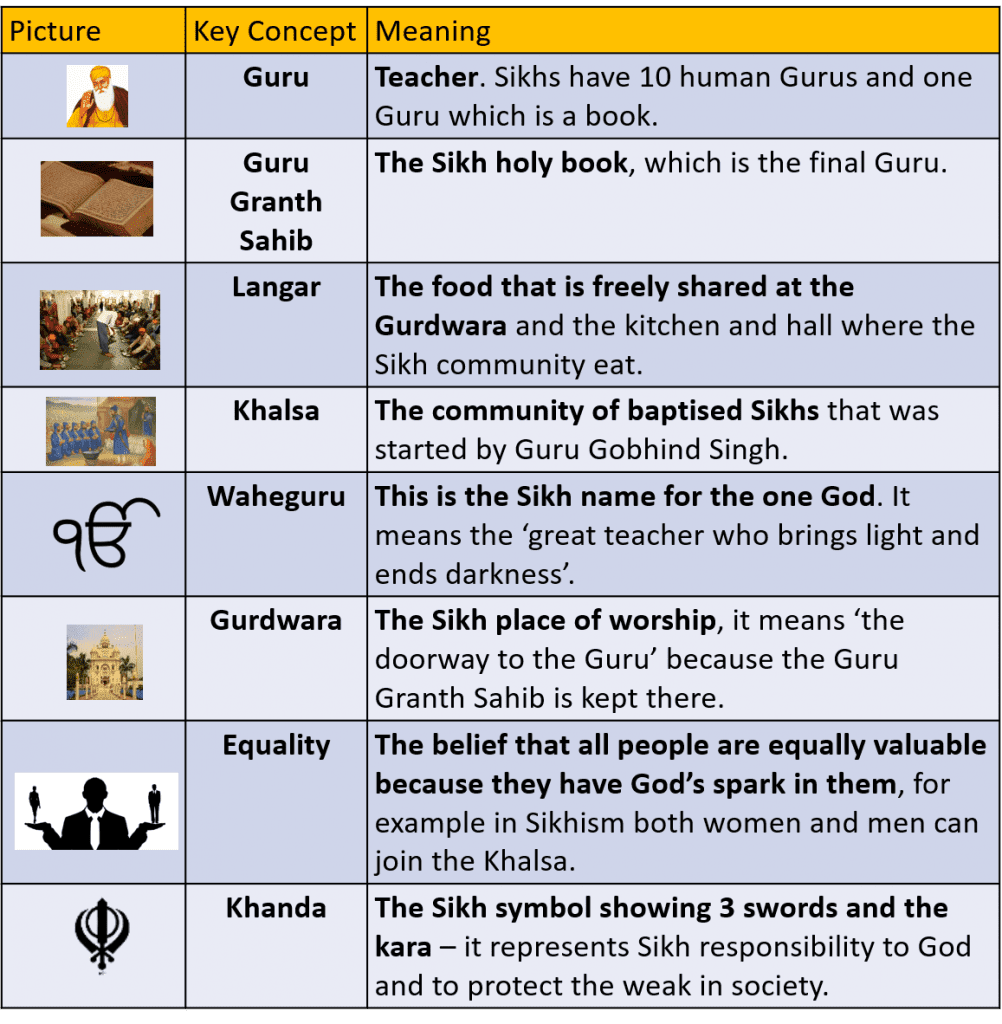Sikhism is a religion that emphasizes on monotheism, and the belief that one supreme being created the universe. It rejects the caste system and all individuals, regardless of their backgrounds, are considered equal. The holy scripture, Guru Granth Sahib, is regarded as the final guru and contains teachings of the ten Sikh gurus, among others. Sewa, the act of selfless service towards others, is an important duty that Sikhs should perform. Naam simran is the practice of meditating on the name of God, and kirat karo refers to engaging in honest labor. Vand chakho, the idea of sharing with others, and equality for women are deeply ingrained in Sikh culture. Langar, the practice of serving free food to all, symbolizes equality and communal harmony. The concept of oneness underlines that all living beings are equal, and fosters a sense of unity, compassion, and brotherhood.
1. The Belief in One God
Sikhism is rooted in the belief in one God, who is equally present in every aspect of the world. This belief is referred to as monotheism, and is considered as the most fundamental concept of Sikhism. Sikhs believe that the universe was created by one supreme being, who is limitless in power, and manifests himself in various forms.
2. Rejection of Caste System
Sikhism rejects the hierarchical caste system, which exists in Indian society. In Sikhism, caste, creed, or social status does not determine one’s worth as a human being. All individuals are considered equal, regardless of their background, and everyone is encouraged to be responsible and contribute towards society.
3. Guru Granth Sahib
Sikhism recognizes Guru Granth Sahib as the holy scripture, which contains the teachings of the ten Sikh gurus, as well as selected teachings of Hindu and Muslim saints. It is considered as the final guru, and is regarded as the embodiment of God’s divine revelation.
4. The Concept of Sewa
Sewa is the act of selfless service towards others. In Sikhism, sewa is considered an essential duty that all Sikhs should perform, and it is one of the most important principles of the religion. It is believed that sewa helps to develop humility, compassion, and a sense of community.
5. Naam Simran
Naam simran is the practice of meditating on the name of God, which is believed to bring one closer to God. It involves repeating the name of God, reciting hymns, and focusing one’s attention on God’s formless presence.
6. Kirat Karo
Kirat karo refers to engaging in honest labor, and earning an honest living through hard work. It is one of the core values of Sikhism, and it is believed that a person should work hard and earn a living that is free from any illegal or unethical activities.
7. Vand Chakho
Vand chakho means sharing with others, and it is an essential principle of Sikhism. The concept of sharing is deeply ingrained in Sikh culture, and Sikhs are encouraged to share their wealth, time, and resources with others. It is believed that sharing helps to create a more caring and compassionate society.
8. Equality of Women
Sikhism is unique in recognizing the equal rights of women, and rejecting the patriarchal mindset prevalent in Indian society. Women are given equal opportunities for education, employment, and social status. Sikh women are also allowed to participate in religious services and take on leadership roles in the community.
9. Concept of Langar
Langar is the practice of serving free food to all, regardless of their social background. Langar is a community kitchen, which is open to everyone, and is the core of Sikh culture. It is a symbol of equality, compassion, and communal harmony.
10. The Concept of Oneness
The concept of oneness or ‘Ik Onkar’ is the central tenet of Sikhism, which is the belief in the unity of God and the universe. It is the essence of Sikhism, and it underlines the fact that all living beings are equal, and all are part of a larger divine plan. The concept of oneness helps to foster a sense of unity, compassion, and brotherhood among all people.
